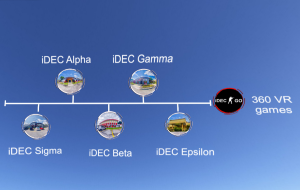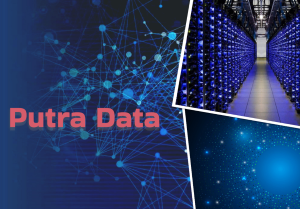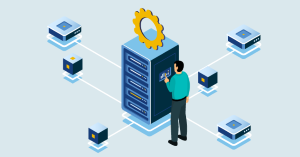Artificial intelligence (AI) has emerged as a critical force in today's technological environment, impacting many aspects of daily life. One of the most significant advances in this field is OpenAI's creation of Generative Pre-trained Transformer (GPT) models, which have changed the way humans engage with digital platforms (Vaswani et al., 2017).
The Generative Pre-trained Transformer (GPT) is a well-known family of neural network models that specialize in natural language processing. GPT models, which were first developed by OpenAI in 2018, use a transformer architecture and are pre-trained on huge text corpora (plural-corpus is a collection of texts) to deliver robust language creation and understanding. Over iterations, the models' scale has risen substantially, resulting in more capable performance.
GPT models have a wide range of applications in a variety of industries. They power chatbots that deliver human-like responses around the clock in customer service (OpenAI, 2021). GPT aids in the generation of innovative and informative prose, speeding the writing process (OpenAI, 2021). These models are also important in language translation, as they improve cross-cultural communication (Brown et al., 2020).
The following table summarizes key versions of the GPT models:
|
Model
|
Developer
|
Year
|
Parameters
|
Training Data
|
Key Notes
|
References
|
|
GPT-1
|
OpenAI
|
2018
|
117M
|
BookCorpus
|
Original GPT model
|
(Radford et al., 2018)
|
|
GPT-2
|
OpenAI
|
2019
|
1.5B
|
WebText
|
Strong text generation
|
(Radford et al., 2019)
|
|
GPT-3
|
OpenAI
|
2020
|
175B
|
Common Crawl
|
Impressive few-shot learning
|
(Brown et al., 2020)
|
|
GPT-3.5
|
Anthropic
|
2022
|
20B
|
-
|
Faster inference than GPT-3
|
(Anthropic, 2022)
|
|
GPT-4
|
Anthropic
|
2022
|
100T (expected)
|
-
|
Next generation model, not released yet
|
(Metz, 2022)
|
|
GPT-3.5 Turbo
|
Anthropic
|
2023
|
7.5B
|
-
|
Faster version of GPT-3.5
|
(Anthropic, 2023a)
|
|
GPT-4 Dragon
|
Anthropic
|
2023
|
100T
|
-
|
Expanded GPT-4 for researchers
|
(Anthropic, 2023b)
|
|
GPT-3.6
|
OpenAI
|
2023
|
10B
|
-
|
Upgrade over GPT-3
|
(OpenAI, 2023)
|
|
GPT-4 Muse
|
Anthropic
|
2023
|
200B
|
-
|
GPT-4 focused on creativity
|
(Anthropic, 2023c)
|
As shown in the table, the GPT models have rapidly scaled up in size and capability with each new version. Both OpenAI and Anthropic are pushing the boundaries of large language models with their ongoing GPT research and development. Exciting advancements in natural language processing abilities are anticipated as these models continue to evolve.
REFERENCES
- Anthropic. (2022). Anthropic AI research lab tackles high-stakes problems using self-correcting AI. https://www.anthropic.com
- Anthropic. (2023a). Introducing GPT-3.5 Turbo. https://www.anthropic.com/blog/announcements/introducing-gpt-3-5-turbo
- Anthropic. (2023b). Introducing GPT-4 Dragon. https://www.anthropic.com/blog/announcements/introducing-gpt-4-dragon
- Anthropic. (2023c). Introducing GPT-4 Muse. https://www.anthropic.com/blog/announcements/introducing-gpt-4-muse
- Brown, T. B., Mann, B., Ryder, N., Subbiah, M., Kaplan, J. D., ... Amodei, D. (2020). Language models are few-shot learners. https://arxiv.org/abs/2005.14165
- Metz, C. (2022, April 11). A.I. researchers are making more than just code. The New York Times. https://www.nytimes.com/2022/04/11/technology/ai-anthropic-research-lab.html
- OpenAI. (2023). OpenAI API: GPT-3 upgrades. https://platform.openai.com/docs/guides/gpt-3/upgrades
- Radford, A., Narasimhan, K., Salimans, T., & Sutskever, I. (2018). Improving language understanding by generative pre-training. https://s3-us-west-2.amazonaws.com/openai-assets/research-covers/language-unsupervised/language_understanding_paper.pdf
- Radford, A., Wu, J., Child, R., Luan, D., Amodei, D., & Sutskever, I. (2019). Language models are unsupervised multitask learners. https://d4mucfpksywv.cloudfront.net/better-language-models/language_models_are_unsupervised_multitask_learners.pdf
- Vaswani, A., et al. (2017). Attention Is All You Need. Advances in Neural Information Processing Systems.
Prepared by:
Hashimah Amat Sejani
Date of Input: 28/12/2023 | Updated: 28/12/2023 | nazlina
MEDIA SHARING



























